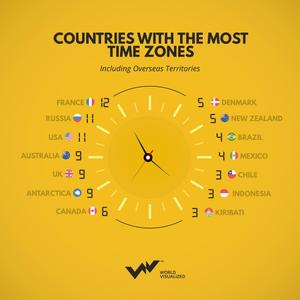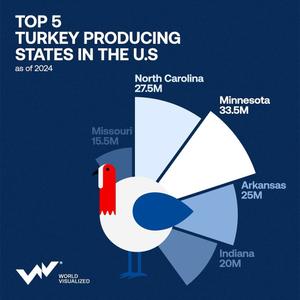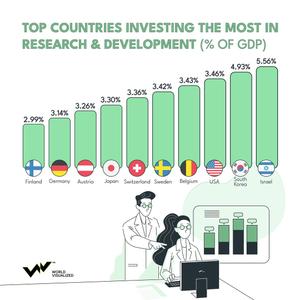math

World / 1 year ago
Global population growth peaks as declines loom for many nations
The world’s population has grown by an extraordinary 700% over the past 200 years, from 1 billion people in 1800 to 8.2 billion today. However, this growth trajectory is not universal, with some countries poised for substantial population declines by 2050 due to low fertility rates and high emigration. According to DevelopmentAid, Eastern Europe is a striking example, where populations are shrinking significantly. This trend is largely driven by declining birth rates that have persisted since the collapse of the Soviet Union, combined with waves of emigration to the European Union. Other nations outside Europe, such as Japan and Cuba, are also grappling with similar challenges.

World / 1 year ago
How close is too close? Global study reveals social interaction distances
A groundbreaking 2024 study involving 650,000 participants from 196 countries has unveiled intriguing insights into how much personal space people prefer during social interactions. The findings highlight cultural differences in physical proximity, offering a fascinating look at how people navigate personal boundaries worldwide. According to CEOWORLD Magazine, closeness is a hallmark of social interaction in Argentina. The study found that Argentinians are comfortable standing closer to one another, reflecting a cultural emphasis on intimacy and connection. For those who value proximity, Argentina presents a warm and welcoming environment where closeness is seen as a gesture of community and trust.

Culture / 1 year ago
Public libraries: Global beacons of knowledge and community
Public libraries serve as pillars of education, culture, and community engagement, and some cities stand out for their exceptional commitment to fostering access to knowledge and cultural enrichment. From Warsaw’s post-war transformation to Seoul’s bustling library programs, these examples illustrate the enduring impact of libraries worldwide. According to World Cities Culture Forum, Warsaw leads the world in public libraries per capita, boasting 11.98 libraries per 100,000 residents. Following the devastation of World War II, the city prioritized rebuilding its educational infrastructure, seeing libraries as vital to its cultural revival. This investment laid the foundation for a public library network that continues to promote literacy, lifelong learning, and cultural preservation. Today, these libraries are not just repositories of books but vibrant community spaces where residents gather to learn and connect.

Politics / 1 year ago
Record breaking votes in global elections: What they reveal about democracy
Did you know that Prabowo Subianto of Indonesia now holds the record for the most votes ever received by a directly elected president in a democratic system? In 2024, he secured 96.2 million votes, solidifying his place in electoral history, according to the World Population Review. Indonesia continues to dominate this list, with Joko Widodo’s (Jokowi) 2019 re-election coming in second. Jokowi garnered 85.6 million votes during his campaign for a second term, further demonstrating the nation’s robust voter participation in its democratic process.

World / 1 year ago
France tops the list of countries with the most time zones
The division of the world into time zones reflects not only geography but also the reach of nations with far-flung territories. France holds the distinction of leading the world in time zones, a testament to its global territorial presence. World Atlas reveals that France claims 12 official time zones, which expands to 13 if its Antarctic territories are included. This wide coverage stems from the nation’s overseas regions and territories, including French Polynesia in the Pacific and Réunion in the Indian Ocean, showcasing its historical and geographical influence across the globe.

Culture / 1 year ago
America’s Thanksgiving turkeys: The states feeding the nation
Every Thanksgiving, millions of American families gather around tables to celebrate the holiday, with turkey as the centrepiece of the feast. Behind this cherished tradition lies a massive agricultural effort concentrated in a handful of states that dominate the nation’s turkey production. U.S. Department of Agriculture reveals that Minnesota stands at the forefront, producing nearly 34 million turkeys annually. The state’s success is attributed to multi-generational farming expertise, fertile land supporting abundant corn and soybean crops, and advancements in veterinary science that ensure efficient and sustainable production.

Politics / 1 year ago





